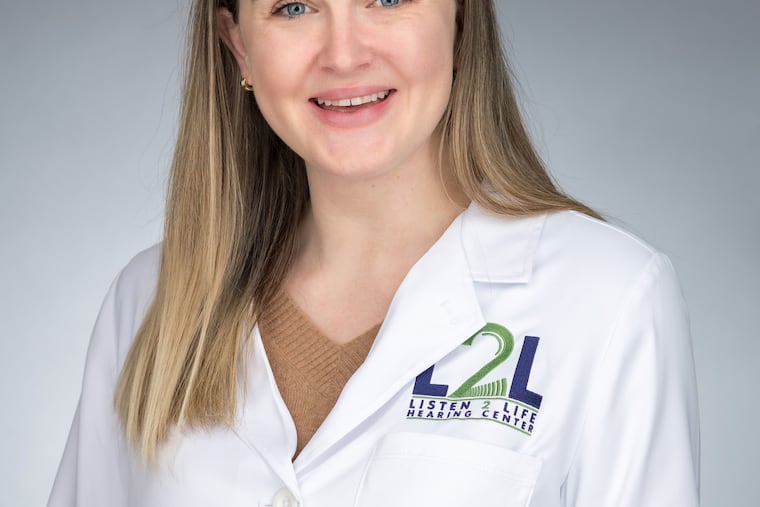Tips from an audiologist about hearing loss for patients and medical providers
Audiologist Stephanie DiSpigno treats hearing loss, tinnitus, and fits hearings aids.

The red flag signs of a hearing-related issue that requires medical attention include sudden hearing loss, or hearing loss in only one ear. Such symptoms should be taken seriously and assessed by a physician, audiologist Stephanie DiSpigno advises.
DiSpigno treats hearing loss and tinnitus (ringing in the ear), and fits patients with hearing aids at Listen 2 Life Hearing Centers, which has clinics in Bucks and Montgomery Counties.
She spoke to The Inquirer about what patients need to know when considering visiting a professional to address hearing complaints.
The difference between an audiologist and physician
Audiologists assess the severity of hearing loss and can provide treatment options. Physicians, such as ear, nose, and throat specialists, can assess whether hearing symptoms are part of a medical condition.
Know the red flags
Seek medical attention any time you experience fluid draining out of the ear, sudden hearing loss, hearing loss or ringing that affects only one ear. Balance issues can be another symptom of an ear-related issue that merits seeking medical attention.
“Anything that is a red flag, we always defer to our ENT partners,” DiSpigno said.
» READ MORE: Hearing aids will now be available without a hearing test. Here’s what to know about the new rule.
Call your insurer
Private and public insurance coverage for hearing aids can vary widely. Among the government-funded coverage programs for seniors and low-income families, Medicaid in Pennsylvania covers hearing aids for children, but Medicare does not for seniors.
“We help each patient make the best choice, audiometrically and financially,” she said.
Don’t wait
Many patients wait for years after being diagnosed with hearing loss to pursue treatment, DiSpigno said. For some patients, hearing loss can trigger feelings of grief and worries about aging.
But advancements in treatment options allow patients to quickly regain quality of life.
“Once they realize that their hearing loss is impacting their quality of life, do something about it,” she said.